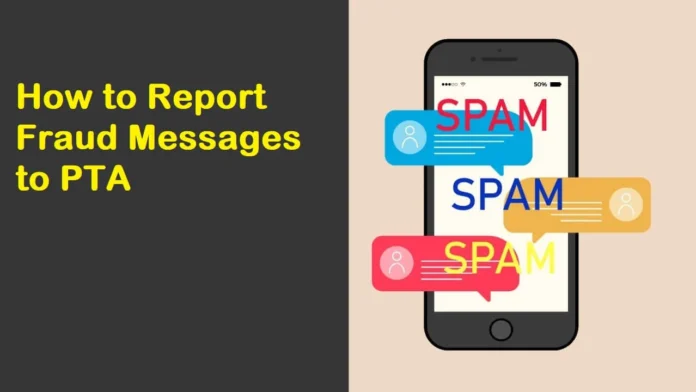Pakistan Telecommunication Authority (PTA) has warned the citizens of Pakistan about the rise of fraudulent messages/calls they are receiving. PTA directs people to not respond to fraud messages instead they are encouraged to report them. PTA said that complaints have been received regarding scammers impersonating “Bol Game Show” and similar shows who call/send SMS/WhatsApp messages. In this regard, PTA warns to not share your personal or financial information with such scammers. PTA also reveals the way how you can report fraud messages.
PTA Warns People to not Respond to Fraud Messages – Here is How to Report
How to Report A Number to PTA?
- First, report the scam number to your service provider (Jazz, Zong, Telenor, Ufone & PTCL) for blocking the suspected number.
- If no response is received from the service provider, you can also report the number to PTA for blocking by dialling 0800-55055.
-
- You can also complain on PTA CMS mobile app. You have to provide the following information
- Scammer’s mobile number
- The mobile number on which you received Scam messages/calls
- A screenshot of the received calls/messages
- Date/ time stamp of the fraudulent call/message received
- If you received messages on WhatsApp, simply report them to WhatsApp.
- PTA will block such numbers and mobile devices IMEI. Repeat offences from the same person (using a different number) will result in the blacklisting of such CNICs for issuance of new SIMs/connection
How to Report to the State Bank of Pakistan or FIA
- If a financial/banking fraud has occurred, contact the State Bank of Pakistan: cpd.helpdesk@sbp.org.pk
- You can also report to National Response Centre for Cybercrime(NR3C)-FIA, helpline: 1991 or 051 9106384 or visit nr3c.gov.pk
Protect yourself from Fraudulent Messages
- Do not open suspicious texts, or click on links or attachments in SMS – ignore and report.
-
- You should warn your friends and family about scams. Beware of any requests for your details or money. Never send money or give ATM or PIN details, online account details or copies of personal documents to anyone you don’t know or trust.
- If you are not sure that you’re being scammed, stop sending money. Scammers will keep asking for more money until you stop.
- If you have sent money or shared your banking details with a scammer, contact your bank & police immediately. They may be able to stop a transaction, or close your account if the scammer has your account details.
- You can also complain on PTA CMS mobile app. You have to provide the following information




